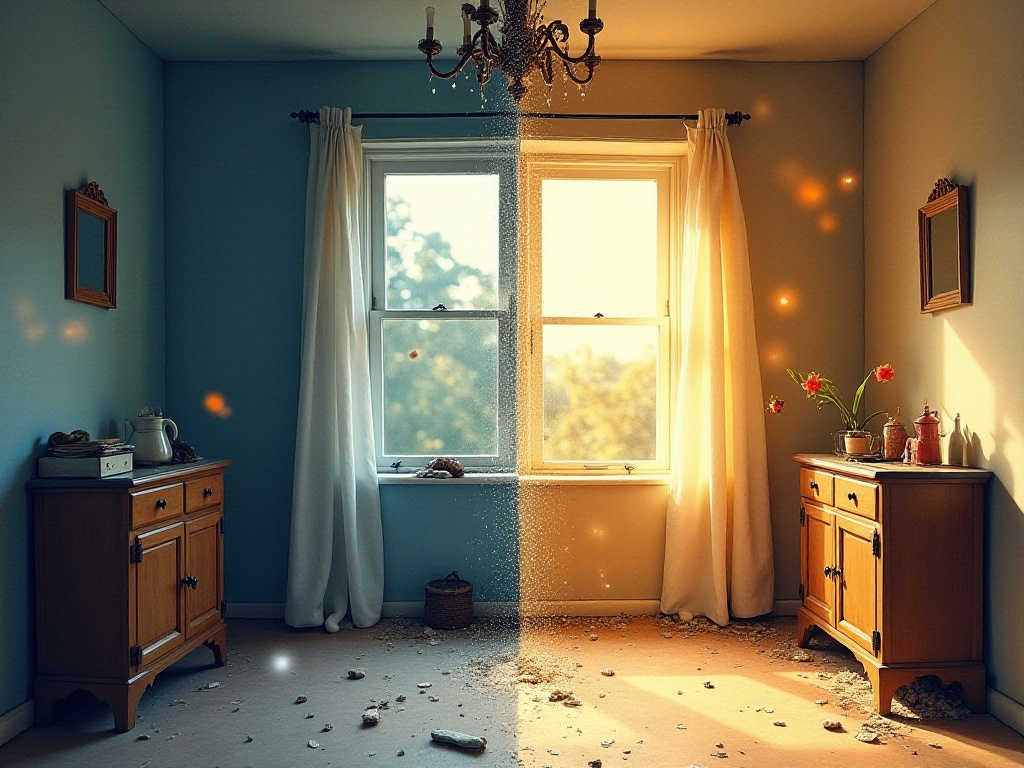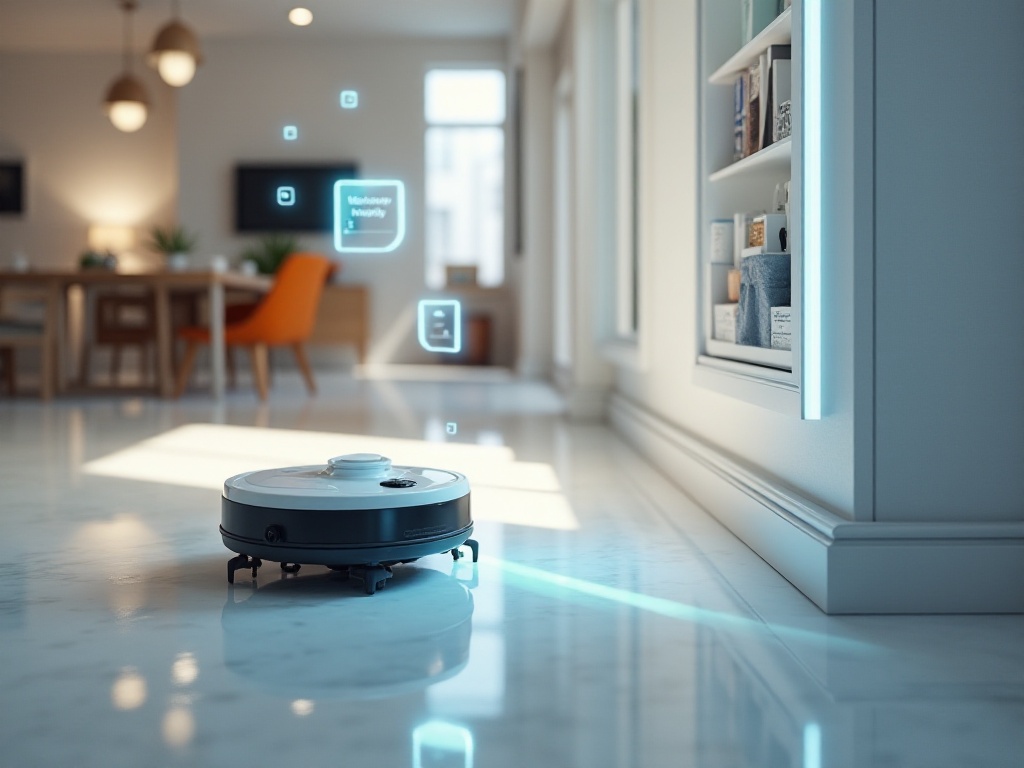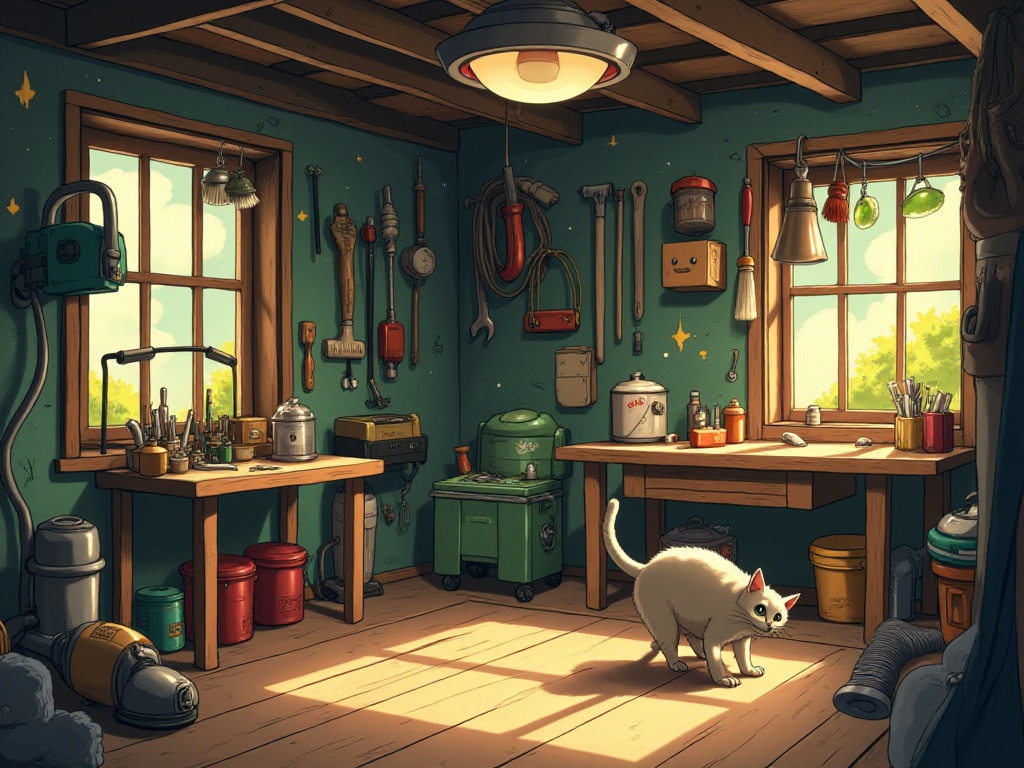Introduction
As a young person who just moved out on their own, I was overwhelmed by various household issues. Dripping faucets, malfunctioning air conditioners, moldy walls... these problems kept coming one after another. After years of exploration and learning, I finally figured out some strategies, and today I'll share my experience with everyone.
Safety First
When it comes to home maintenance, safety is absolutely paramount. When I first moved into my new house, I had no idea how important safety equipment was. It wasn't until I was awakened one night by a neighbor's fire alarm that I realized the importance of safety equipment.
Smoke detectors are truly essential for every household. According to fire department data, homes with properly installed and maintained smoke detectors have a 60% higher survival rate in case of fire. I now check my smoke detectors monthly, a habit that stems from a false alarm last year. That day, while I was cooking steak, there was too much smoke, and the detector alarmed promptly, reminding me to turn on the range hood, preventing a potential accident.
Carbon monoxide detectors are equally important. Many people might not know that carbon monoxide is colorless and odorless, known as the "silent killer." I learned this lesson the hard way when renting, experiencing mild poisoning symptoms from using a gas heater in winter, fortunately discovering it in time. Since then, I've installed carbon monoxide detectors in both bedroom and living room, checking them monthly. Once, the detector suddenly alarmed, and upon inspection, we found issues with the gas water heater's exhaust duct, timely repairs prevented a potential tragedy.
Beyond these basic safety equipment, I recommend preparing a home first aid kit. Besides regular band-aids, gauze, and disinfectant, I specifically included burn cream and injury medicines. Once while fixing a pipe, I cut my hand, and thanks to this first aid kit, I could treat the wound immediately.
Door and window safety checks are also important. I check the locks and seals monthly. Especially during seasonal changes, doors and windows might warp due to temperature changes, making timely adjustment and maintenance particularly important. Once I found my balcony sliding door wouldn't close properly, and after careful inspection, discovered dust in the tracks - cleaning solved the problem.
Electrical safety cannot be ignored. My circuit breaker box has a diagram showing which switch corresponds to which area. This was the first thing I did after moving in, because in case of electrical problems, you can quickly locate the fault. Last year, one outlet showed signs of overheating, I immediately cut power to that circuit and called an electrician, who found the outlet was aging - timely replacement avoided a potential fire hazard.

System Maintenance
Air conditioning system maintenance was one of my biggest headaches. When I first moved in, I knew nothing about cleaning the AC, resulting in poor cooling performance in summer. After learning online, I discovered how dirty the filters were. After cleaning, not only did the cooling improve, but electricity bills also decreased significantly.
Now I clean the AC filters monthly, which is actually quite simple: first vacuum the surface dust, then wash with warm water and neutral cleaner, and reinstall after drying. It's particularly important that filters are completely dry before reinstallation, otherwise bacteria might grow.
Besides basic filter cleaning, the outdoor unit also needs regular maintenance. Every spring, I have professionals do a deep clean, including cleaning heat sinks and checking refrigerant. Though the cost seems high, compared to extended AC lifespan and electricity savings, this investment is worthwhile.
Plumbing system maintenance is also technical. I've noticed many people ignore routine pipe checks until problems arise. Prevention is important, like regularly checking pipe joints for leaks, especially at bends and connections. I've developed a habit of wiping pipe joints with white paper monthly - if there's moisture, it might indicate minor leaks.
Water heater maintenance is crucial too. I have a gas water heater and have it professionally inspected annually, including descaling and gas line checks. Once I noticed unstable water temperature while showering, inspection revealed excessive scaling affecting heat exchange efficiency - cleaning restored normal operation.
Fresh air systems are also essential for modern homes. I replace filters every three months, as indoor air quality noticeably improves after replacement. Especially during spring when pollen counts are high, regular filter replacement effectively reduces allergic reactions.

Daily Maintenance
Regarding bathroom mold prevention, this is one of my major insights. Initially, I was always troubled by bathroom mold, trying many cleaners with little success. Later I discovered prevention is more important than treatment. Now after each shower, I use a squeegee to quickly remove water from walls and floor, then run the exhaust fan for at least 15 minutes.
Additionally, I treat walls and gaps weekly with professional anti-mold spray. Tile grout especially tends to grow mold. I now use an anti-mold spray containing natural tea tree oil, which is both effective and harmless to humans.
Kitchen appliance maintenance is also an art. Taking refrigerators as an example, many might not know that cooling efficiency directly affects lifespan and power consumption. I specifically leave 15cm space behind the fridge and regularly clean the cooling fins. Since doing this, the fridge runs notably quieter and uses less electricity.
Range hood cleaning is another focus. I disassemble and clean the filters weekly and have the duct professionally cleaned quarterly. Once the suction power notably decreased due to neglected cleaning, returning to normal after cleaning. Now I also open windows while cooking to maintain kitchen ventilation, reducing hood burden.
Dishwasher maintenance is important too. I do a monthly empty cycle with professional cleaner to remove pipe scale and grease. I also regularly check filters and spray arms to ensure they're not blocked by food debris.

Seasonal Work
Each season has its specific maintenance work. Spring is ideal for comprehensive inspection; I focus on checking the roof and exterior walls. During last spring's inspection, I found several loose tiles and repaired them promptly, avoiding leaks during rainy season.
Exterior wall inspection focuses on two aspects: wall cracks and window seal condition. I carefully examine walls with a magnifying glass, immediately treating small cracks with waterproof sealant. Last year I discovered a fine crack this way and repaired it promptly, preventing rain penetration.
Gutter cleaning is another important task. I clean gutters twice yearly in spring and fall, removing accumulated leaves and debris. Once while cleaning, I found a deformed downspout and replaced that section promptly, avoiding future troubles.
Summer focuses on AC system maintenance. Besides routine filter cleaning, I check duct insulation integrity, as damaged insulation seriously affects cooling efficiency. Last summer, replacing damaged insulation notably improved cooling performance.
Fall involves winterization preparation. I check door and window seals, replacing weatherstripping when necessary. Pipes also need frost protection, especially outdoor pipes which I wrap with insulation cotton to prevent winter freezing.
Winter requires attention to heating system maintenance. I have floor heating, which gets cleaned and air-purged before winter annually to ensure heating effectiveness. Last year one room wasn't heating well, inspection revealed air blockage - purging restored normal operation.

Practical Tips
Over years of home maintenance, I've accumulated many practical tips. For carpet furniture indentations, besides ice cubes, steam irons work well too. Specifically, set the iron to steam, press over a damp cloth on the indentation, then gently brush with a soft brush.
Wall crack repair requires technique. Besides mixing baking soda with white glue, I found toothpaste works well too. Use white toothpaste on completely dry cracks. After repair, lightly sand and cover with wall paint for natural results.
Wooden furniture maintenance has tricks too. I regularly wipe wooden furniture with olive oil to prevent cracking and maintain shine. This is especially effective in dry winters. Remember to use soft cloth with moderate oil to avoid surface greasiness.
Leather sofa maintenance is important too. I apply professional leather conditioner quarterly to prevent cracking and fading. Before applying conditioner, always wipe surface dust with soft cloth, then apply evenly.
Metal items have rust prevention tricks. I apply a layer of petroleum jelly on metal surfaces for effective rust prevention. This works especially well for outdoor metal items like wrought iron fences.

Conclusion
Through years of practice, I've deeply realized home maintenance isn't difficult; the key is developing good habits and mastering correct methods. The satisfaction of seeing your home improve is indescribable.
Home is indeed our most important haven; care for it well and it returns the warmest rewards. I hope my sharing helps more people learn to care for their homes. Let's work together to create a safer, more comfortable living environment.
Remember, home maintenance isn't just a task but a life attitude. Through continuous maintenance and improvement, our homes become increasingly perfect. The process might be tough, but seeing the results makes everything worthwhile.




